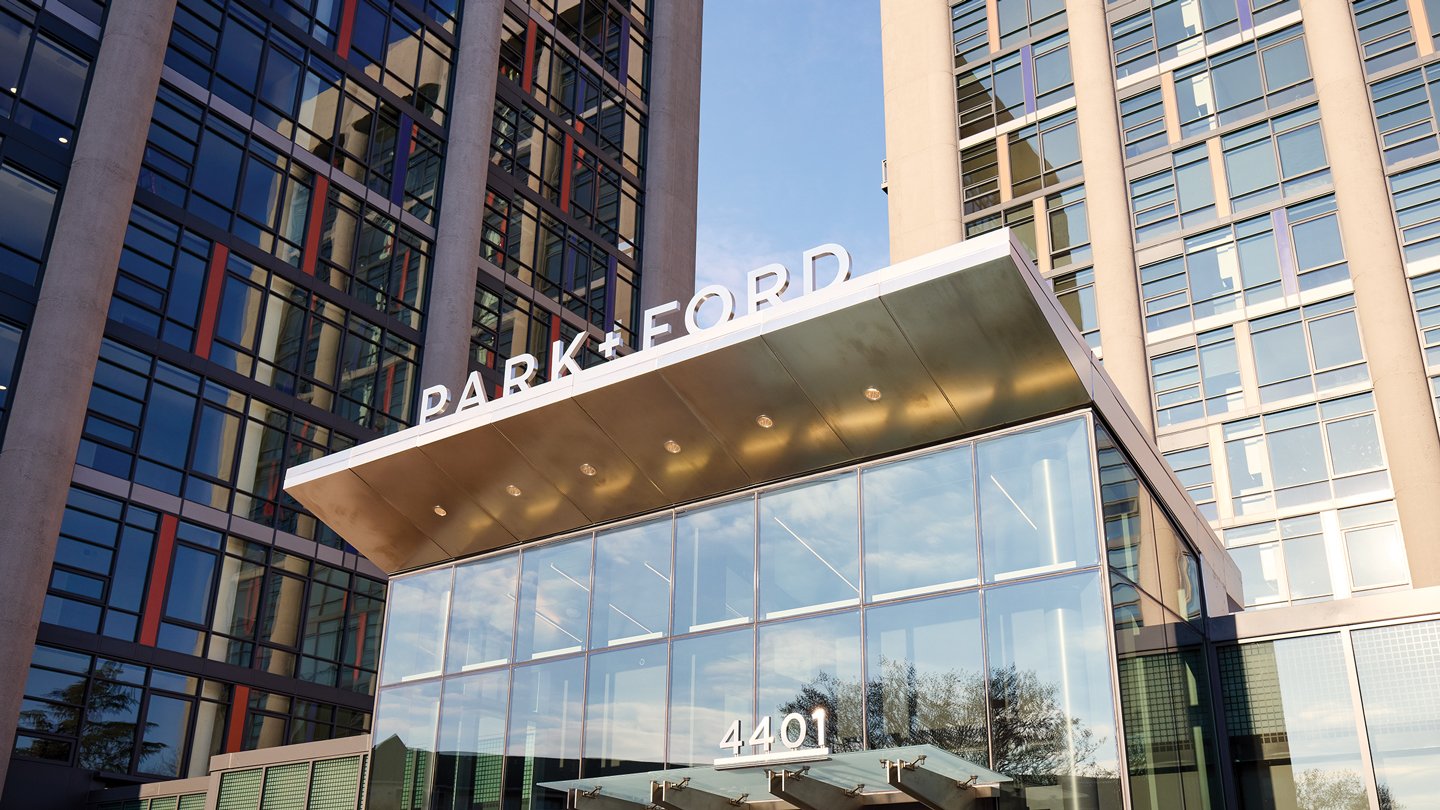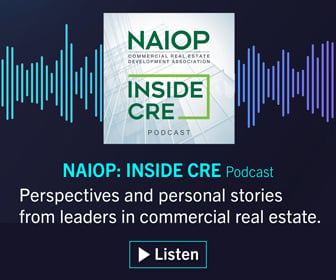CEO on Leadership: Jean V. Kane, Former CEO of Colliers International Minneapolis/St. Paul

The former leader of Colliers International-Minneapolis/St. Paul and 2014 NAIOP National chair talks about how she took a locally owned real estate company and made it part of an international firm with 18,000-plus employees and 400 offices in 67 countries.
Development: What led you to a career in commercial real estate?
Jean Kane: I landed an unpaid marketing internship with a local Minneapolis real estate developer when I was in college. He allowed me to shadow him, and it was the first time I had ever seen how the built environment could make an impact on neighborhoods or communities. I also saw the power of private, public and philanthropic or mission-driven groups coming together. I said, “Wow, I want to be part of this.”
After college, it took two years for me to get my first job in real estate because of the economy in the Twin Cities. But I was eager to move up quickly in the business, so I started looking for other opportunities after working there for two years. I got two job offers: one paid $20,000 a year and another $25,000. I took the job with Welsh Companies for the lower salary because it offered big opportunities. The rest is history…I was with the same company for over 30 years. When I say the same company, it really isn’t the same because it has adapted and grown with different ownership structures and is now part of Colliers.
Development: How did you achieve a top leadership position at the company?
Kane: I am a people person. I love people; I love building relationships. Without a doubt, you cannot be successful in real estate — you cannot be a successful leader — if you do not like people. Further, I love positive change, and I am a planner by nature. Success in real estate is not about being the biggest or the strongest. It is about being resilient, adaptable and embracing change.
Development: What does leadership mean to you?
Kane: When I think about leadership, I think about surrounding myself with motivated, talented people who are good at what they do. Each person I work with has made an impact on me and inspired me, and the only possible result is success.
Development: What was your primary role as CEO of Colliers International-Minneapolis/St. Paul?
Kane: My role was leading the Minnesota region for Colliers. It was about focusing on growth and specializations that we could add, creating an environment within the business to allow our people to better support our clients, and encouraging a culture within the company that people can trust and where they can build a career.
Development: You have been an outspoken advocate for diversity and inclusion for years. Share with us your thoughts on D&I.
Kane: Diversity and inclusion has been near and dear to my heart from early in my career. I am very thankful to NAIOP and our Executive Board of Directors. When I was serving as chair of NAIOP, I had the full support of the Executive Board to fully embrace diversity and inclusion. Diversity and inclusion is not about the bottom line; it is about doing the right thing. It is the only way to lead our businesses and our industry into the future. The Twin Cities have been and will continue to be in the national news over the death of George Floyd while in police custody. In addition, this pandemic has shone a bright light on the social inequities in society. I think it is important for all of us who have the ability to make change to stand up and do our part to drive diversity and inclusion.
Development: You took a considerable risk spinning off Welsh Companies in 2011. Could you tell us about it?
Kane: It actually started in 2010. Welsh had the service lines of brokerage, real estate management, architecture, construction and property engineering. We were also involved in development and acquisitions, and we owned real estate in syndications or in joint ventures with institutional partners. We tried to go public in 2010; unfortunately, due to the global market and IPO conditions, we opted to pull the offering and move to Plan B, which was partnering with a private equity firm. Early in the partnership, we made the decision to split up the service side of the business from the asset-based business. I would take a majority ownership in the service side and separate from our parent company, which was asset-based. I put all my equity into brokerage, estate management, construction, architecture and property engineering. The charge for me was to grow the business and position it to a point where I had options to bring in a different kind of strategic partner.
We grew our earnings significantly and paid down enormous amounts of debt. I am forever grateful for all the people who stood with me and supported me, and to my husband for believing in me as we put a lot of our chips on the table. We eventually sold most of the business to Colliers in 2017. I didn’t want to sell all the business. I still wanted to have skin in the game. So I retained a minority piece.
Development: What didn’t you know about spinning off a business in 2011 that you know today?
Kane: I knew I was taking on significant risk and had to sign personally for all bank loans. But what I did not realize was that the banks would look at me as a start-up business. Even though I had been in business for 30 years, every bank looked at me as a brand-new CEO. Further, I did not know how hard it would be to get bank debt — but I had colleagues in our organization and clients who stuck with me, and we produced impressive results. That is the power of relationships.
Development: You have contributed greatly to NAIOP over the years. Has NAIOP in return helped you to grow professionally?
Kane: The personal connections I have made with NAIOP members such as Mike Mullen, Molly Carson, Gene Riley, Larry Pobuda, David Confir and Douglas Howe, to name a few, have been priceless. There are so many people that I have gotten to know through NAIOP that have made a positive impact on me professionally. While serving as chair, I had the opportunity to travel across North America and meet with our members on their home turf. The kindness that was extended to me was an amazing experience.
Development: What is the best advice you have been given over the years?
Kane: I grew up in a small town in southern Minnesota with three older brothers. Most little girls back then, when they thought about what they would do when they grew up, thought about being a mom. If they thought at all about a career, it was being either a nurse or a teacher. My brother, who is 12 years older than me, told me to dream big. But he also said I needed to have a plan in addition to dreams. Better yet, have a Plan A, a Plan B and a Plan C. Then you must execute on the plan so that it is more than just a dream. Another great piece of advice my parents gave me when they were dropping me off at college was to always be myself, know my worth and to find the courage to leave the table if I were no longer being listened to or respected. That was powerful stuff to tell a young woman, but they were absolutely right.
Development: What advice would you give someone entering the commercial real estate business today?
Kane: It is OK to be different because that is what sets you apart. Be honest and ethical because your reputation is priceless, and always be true to your word.
Development: Do you have any tips specifically for women coming into the business today?
Kane: Work hard, be authentic and guard your reputation.
Development: What will be next for you?
Kane: My next move will be guided by my values, experiences and relationships that got me here. I am very interested in serving as an independent board director in which my board and ownership experiences and thought leadership would be additive to a board and company.
Ron Derven is a contributing editor for Development magazine.
RELATED ARTICLES YOU MAY LIKE
From the Editor: As the Economy Improves, What’s Next for CRE?
Fall 2023 Issue
Construction Cost Challenges Shift from Materials to Labor
Fall 2023 Issue





